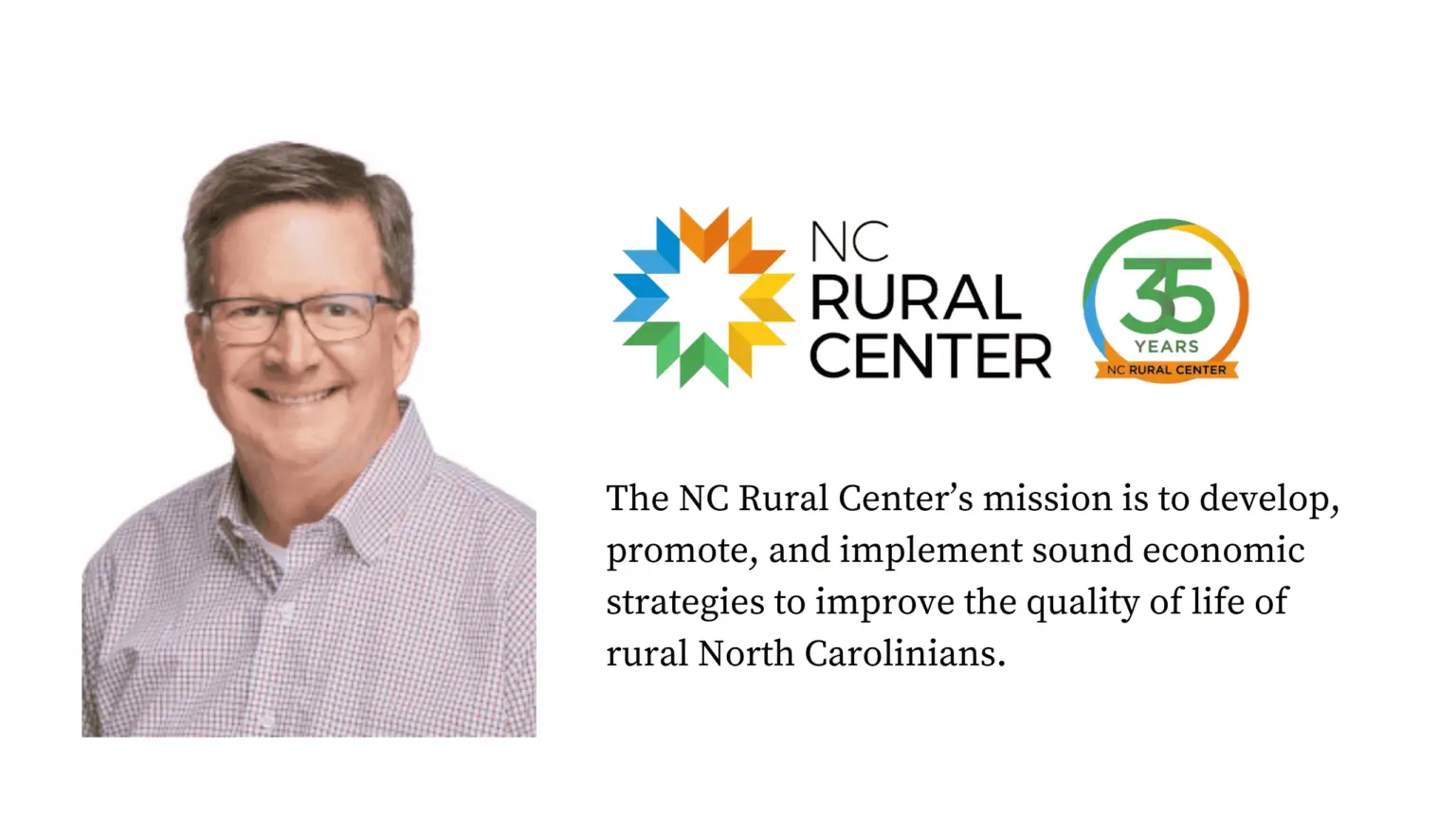Recently, Golden LEAF President, Chief Executive Officer Scott T. Hamilton sat down with Patrick Woodie, President of the N.C. Rural Center, via Zoom and filmed the sixteenth edition in a video series called Critical Conversations. In this series, Scott talks with professionals about economic development issues affecting the state.
Over the last 30 years, Woodie has served in roles that have helped support economic development in North Carolina. Woodie became the president of the N.C. Rural Center in 2013.
The NC Rural Center’s mission is to develop, promote, and implement sound economic strategies to improve the quality of life of rural North Carolinians. The Rural Center serves the state’s 78 rural counties, with a special focus on individuals with low to moderate incomes and communities with limited resources.
Woodie shared that the N.C. Rural Center was founded 35 years ago to focus solely on rural economic development and the rural people and communities of North Carolina. He shared that the N.C. Rural Center has evolved over the last 35 years. Today, the N.C. Rural Center focuses on four major areas: advocacy, policy, and research; leadership development and community engagement; lending programs; and connecting rural communities to resources.
Woodie talked about a recent announcement to expand the state’s Small Business Credit Initiative. He explained that ten years ago, the N.C. Rural Center was asked to deploy North Carolina’s federal allocation of the state’s Small Business Credit Initiative. This program provides state’s with resources for more small businesses to gain access to capital. The original funding they received was $46 million. The $46 million was recycled as loans three times, leveraging almost $1 billion in private funds and creating or retaining more than 16,000 jobs throughout the state. U.S. Deputy Secretary of the Treasury and N.C. Commerce Secretary announced that the N.C. Rural Center will receive $202 million in American Rescue Plan funding for the state’s Small Business Credit Initiative. These funds will quadruple the N.C. Rural Center’s three lending programs and provide more small businesses with access to capital.
Woodie talked about the N.C. Rural Center’s advocacy for last mile rural broadband expansion in rural communities. The N.C. Rural Center created a broadband pilot for 15 counties in Northeastern North Carolina called the Collaborative Broadband project. This project helps county government and county level leaders understand how to access and get the funding to support last-mile broadband in rural areas.
Woodie also talked about the different leadership programs the N.C. Rural Center offers. Some of the challenges rural communities face include the changing leadership base. The Rural Economic Development Institute (REDI) and the regional Homegrown Leaders program focus on a framework and language around economic development as well as a network to call on for support.
Additionally, Woodie talked about challenges and opportunities of rural economic development. He said he is constantly paying attention to the ways the state is growing and changing and the way that the demographics are shifting. While he is glad to see the rural communities and regions that are thriving, he is concerned about the chronically distressed rural communities. He said the rural places that are chronically distressed need the resources that are available to work to make the change possible. Woodie also talked about the importance of working on regional approaches and strategies to help communities work out of economic distress.
Critical Conversations is a feature in the Golden LEAF newsletter every month. The next edition will be in our September 8th edition of LEAF Lines.

